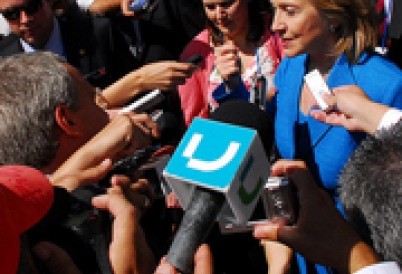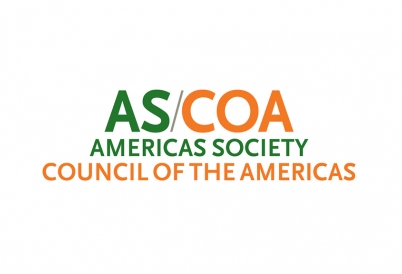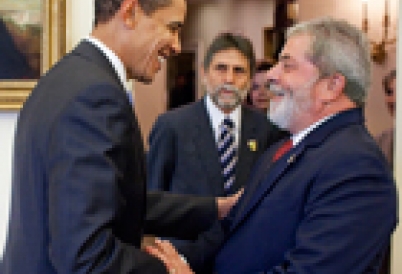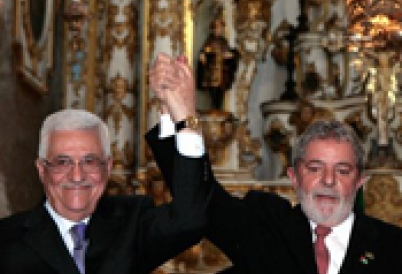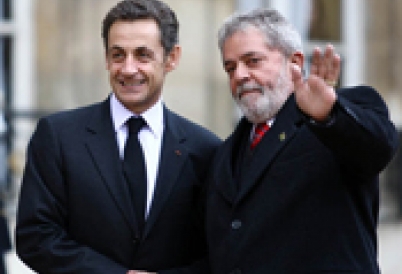Brazil's Iran ties and a devestating earthquake in Chile have been the main focuses of U.S. Secretary of State Hillary Clinton's Latin American travels this week. Her trip, from February 28 through March 5, brings her to Uruguay, Argentina, Chile, Brazil, Costa Rica, and Guatemala.
"If we are able to influence public opinion through media outlets we will be able to overcome the black community's traditional lack of political voice," writes Paulo Rogério, founder of Brazil-based Instituto Mídia Étnica, in the Winter 2010 issue of Americas Quarterly.
From October 2009 through October 2010, seven presidential races are taking place in Latin America, with elections in Uruguay, Honduras, Bolivia, Chile, Costa Rica, Colombia, and Brazil. AS/COA offers an interactive guide to the results thus far and poll figures for elections yet to come.
As Brazil's influence on the world stage increases, its partnership with the United States should be based on mutual recognition and respect, writes COA's Eric Farnsworth in Folha de São Paulo. Economic and political security should not come at either country's expense. (em português)
By the end of the month, President Luiz Inácio Lula da Silva will have played host to Israeli, Palestinian, and Iranian leaders as he lifts Brazil’s profile on Middle East policy. But the November 23 visit of Iran’s Mahmoud Ahmadinejad raises eyebrows, given global concerns over Tehran's nuclear program.
"Brazil's growing influence on the global stage means that leaders with whom the president of Brazil chooses to meet gain greater credibility and, indeed, legitimacy through those meetings," says COA's vice president, commenting on the Iranian president's November 23 trip to Brazil.
After revealing a drop in deforestation rates, Brazil announced a greenhouse gas reduction target of nearly 40 percent by 2020. Brazil has partnered with France to chart a global climate change proposal for next month's UN environmental summit. Still, bold plans could give way to a scaled-back agreement in Copenhagen.







